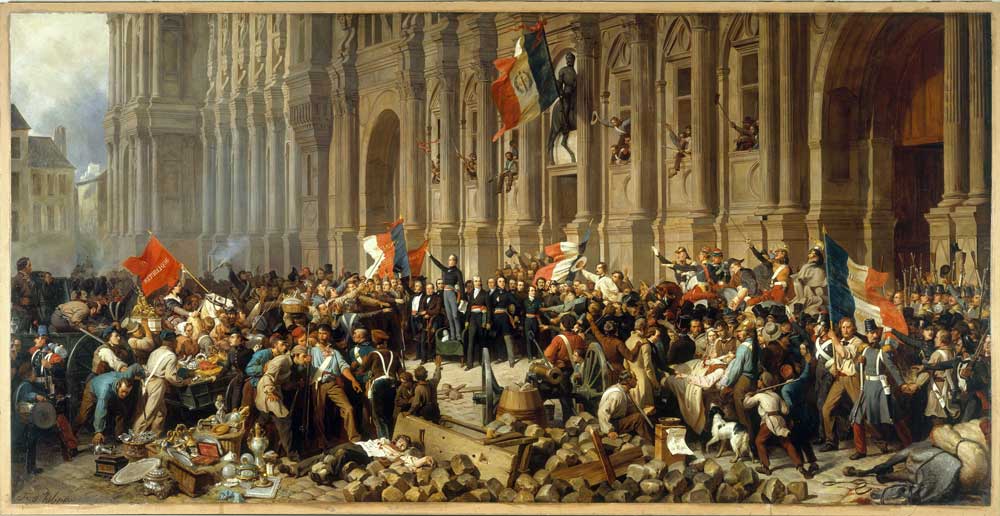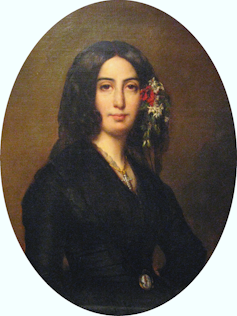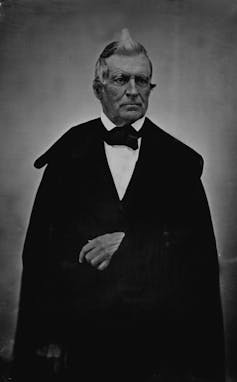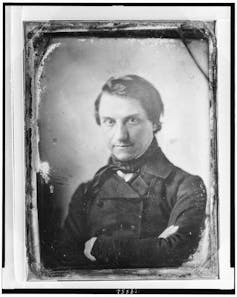
By Rayyan Dabbous
Faced with the new census data that 23 per cent of Canadians are immigrants, Québec Premier François Legault recently warned the province remains determined to find a balance between welcoming newcomers and fighting the decline of the French language.
As a researcher in French literature and political theory, I believe Legault’s thinking is misguided. French isn’t a language of provincialism. Authors like Victor Hugo, George Sand and Alphonse de Lamartine — all of them studied as part of Québec’s core curriculum — championed universalism, not xenophobia.

(Musées de la ville de Paris)
There have been two French revolutions: in 1789, when freedom and national sovereignty occupied popular imagination, and the lesser known uprising in 1848, when justice and human solidarity rose to the fore. French owes its modern, democratic form to the heroes of that second revolution.
The first triumphs of early 1848 — the ousting of the supposedly bourgeois monarch, Louis-Philippe, and the proclamation of the Second Republic — captivated French-Canadians, both young and old. Politician Louis-Joseph Papineau, leader of Lower Canada’s Patriote party, saluted the “truths” being preached across the Atlantic, and 100 young people gathered in a Montréal hotel shouting: “Liberty, equality, fraternity!”
In 1848, Sand wrote:
“I dream of an ideal fraternity, and I believe I would cease to live the day I do not wish it for humanity.”
The inclusive nature of her political ideal signified a shift in discourse on human rights since the first French Revolution in 1789. It soon transcended national borders. Canadians from various ancestries celebrated the events in Paris where one heard “Long live Italy!” and “Long live Ireland!” simultaneously with the French national anthem.
First ‘red scare’
But the French and those abroad were divided on just how radical the second revolution ought to be. This was Canada’s first red scare, almost 100 years before the Cold War-era aversion to communism that was prevalent in North America.
The fierce advocates of the French working class — Sand, Alexandre Ledru-Rollin and Louis Blanc among them — clashed with moderates like de Lamartine.

(National Archives of Canada)
“M. Papineau is the Ledru-Rollin of Canada,” a Montréal-based newspaper proclaimed in May 1848 after praising Lamartine’s promises to the bourgeoisie.
The second French Revolution turned bleak after a three-day insurrection in June 1848, when more than 4,000 French workers died and 15,000 were arrested. While most Canadian newspapers blamed the bloodshed on communist ideology and preached a moderate stance aligned with British conservatism, one journalist reflected how Canadian youth still “cried with all those who suffered.”
What about today’s Québec conservatism?
Legault’s use of the French language as a tool to limit immigration is a historical inversion.
The Montréal youths shouting “Liberty, equality, fraternity!” in 1848 wanted to open doors to the world, not close them. They understood freedom as only one component of human rights: justice and solidarity became necessary complements following the violence of the 1789 revolution.
Historically ignorant
In 1849, writing from exile like Hugo, Blanc reminded the French that his seemingly novel socialist ideas repeated an old Christian motto: “The first must be the servant of the last.”

(Musées de la ville de Paris)
The Québec government does not need to be “a servant of the last” if, as it alleges, the French language is no longer first in line. But its use of the language as an excuse for xenophobia is historically ignorant.
Despite my personal love of the French language, I see no value in students having to watch more movies dubbed in French or being required to take additional French courses at Québec’s publicly funded colleges.
Legault is failing to understand that French has been the language of human rights for hundreds of years. He’s failing to capitalize on the fact that Canadian youth, outraged by global indifference to ongoing existential crises and showing solidarity to international protest movements, could be drawn to French, not English, for that very reason.
In the history of the anglophone media, it’s difficult to find an equivalent to French novelist Emile Zola’s trail-blazing “J’accuse!” op-ed published in L’Aurore that railed against antisemitism, nor a revolution where poets became politicians overnight.
French authors have historically led the world in issuing eloquent and genuine calls for justice. To read Hugo or Sand is to discover new hemispheres in the human heart.
To return the French language to its rightful place as the voice of human rights, the Québec government must promote it as a tool of a human rights-based civic education, not a mandatory language. Welcoming immigrants would subsequently not be an obstacle to the French language or francophone culture — it would be a benefit.
![]()
Rayyan Dabbous is a doctoral candidate at the Center for Comparative Literature, University of Toronto.





























Leave a Reply